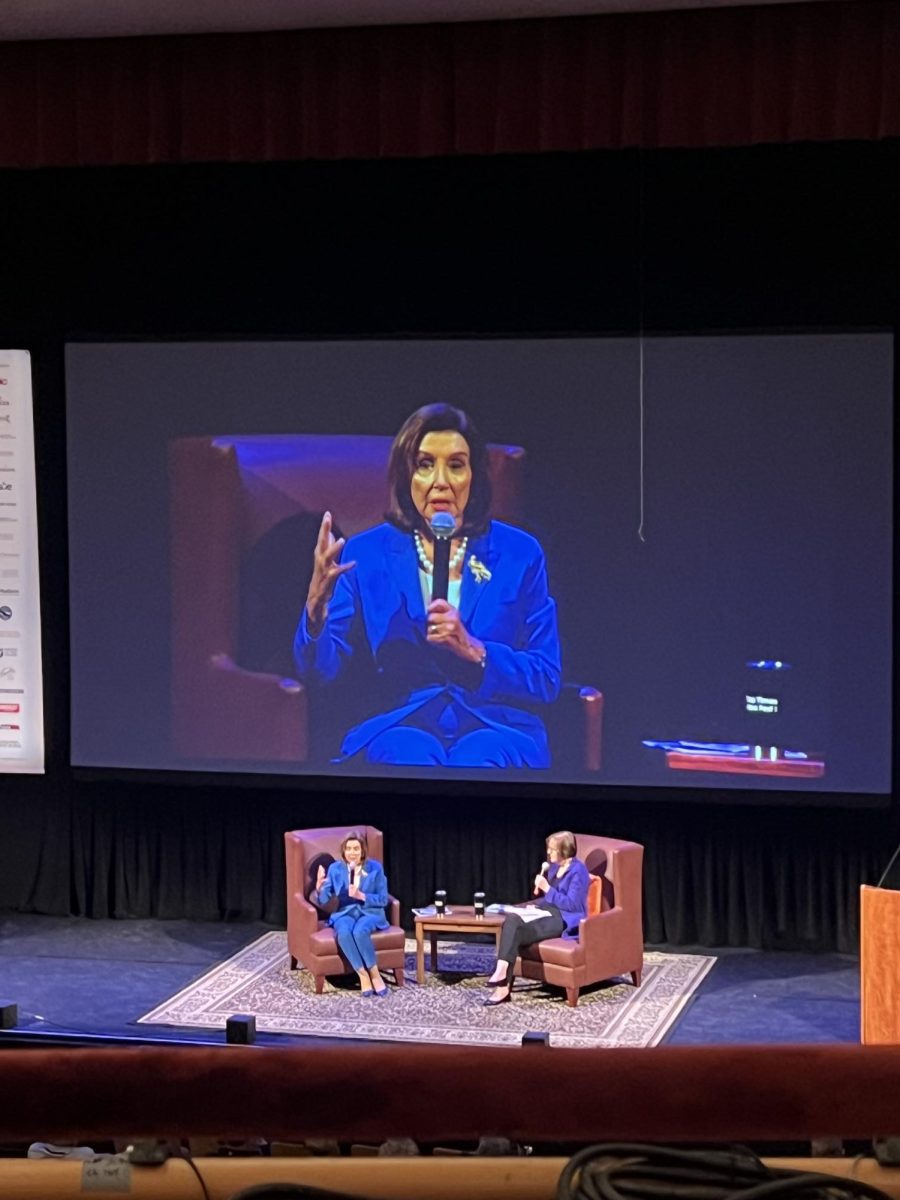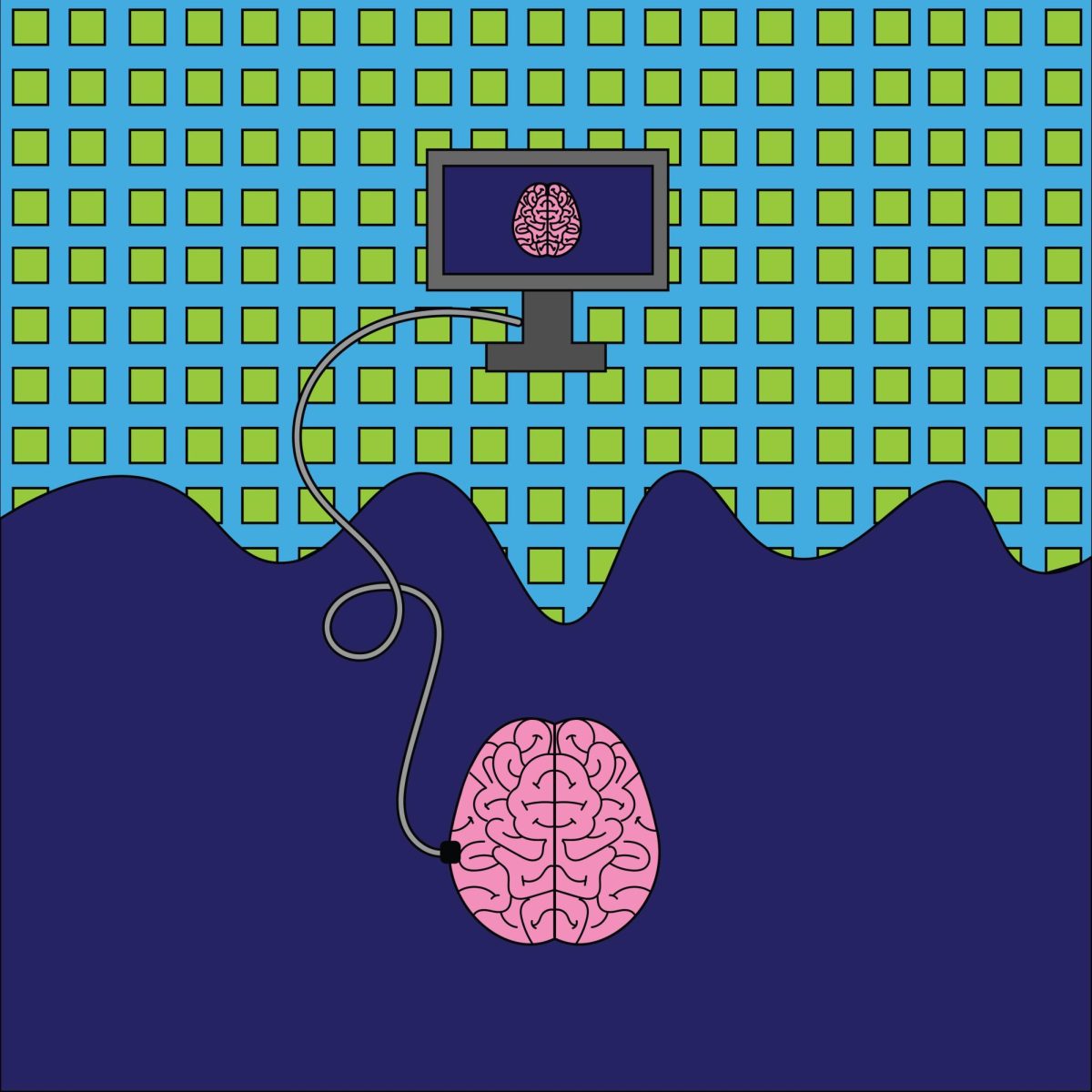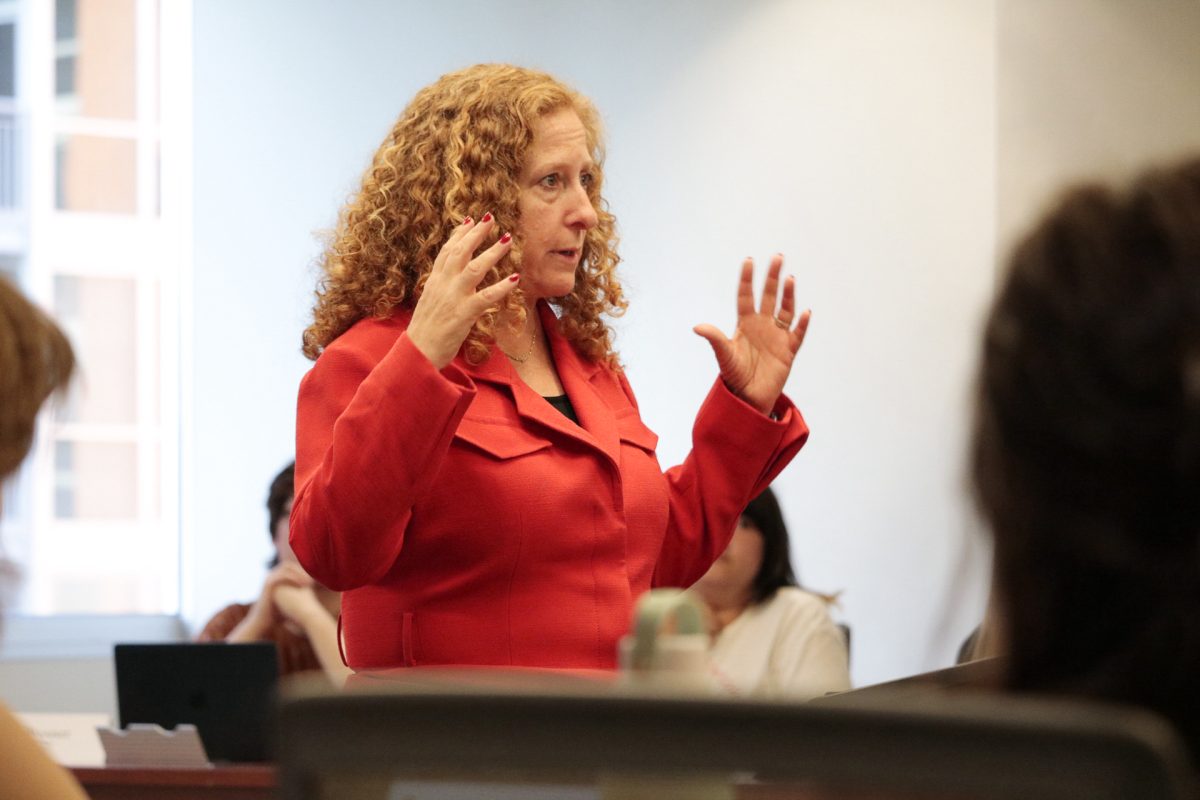Provost Paul DeLuca Jr. recently told the University of Wisconsin community that the graduate school program and connected research enterprise was in a state of crisis., but recent federal reviews suggest the situation is in fact less dire.
Citing multiple violations of research protocols and regulations found by national agencies over the last several years that have threatened the continued success of UW’s nationally renowned research enterprise, DeLuca presented a plan to overhaul UW’s graduate program.
Fearing a hasty restructuring of such magnitude could in fact harm the very thing it was meant to preserve, faculty and staff pushed back. They actively voiced opposition to immediate change at five town hall meetings hosted by DeLuca, and created several ad hoc committees to investigate the proposal.
Both DeLuca and Chancellor Biddy Martin agreed to slow the process to garner faculty input, but maintainedrecognized delaying action too long would be potentially catastrophic.
Two recent extensive reviews of UW’s research facilities and enterprise have shown the pending restructuring process in a less urgent light, however.
Unannounced site visits from the United States Department of Agriculture and the National Institutes of Health last December resulted in 20 citations for violations in federal research standards.
While not disregarding the seriousness of these citations, UW administrators said on the whole these reviews were in fact quite positive and revealed significant improvement from similar inspections in years past that have resulted in strict sanctions, fines and threatened loss of NIH funding.
Considering these recent reviews, DeLuca has abandoned his previous crisis-oriented language in pushing for his contested proposal to restructure.
The reviews
During December, the USDA and the Office of Laboratory Animal Welfare — a branch of NIH — surprised UW researchers and administrators with simultaneous, comprehensive inspections of UW’s research facilities.
A comprehensive visit is uncommon for the USDA, according to Eric Sandgren, director of UW’s Research Animal Resources Center.
Sandgren said in past years the USDA would make up to five visits, inspecting part of the research enterprise each time.
Site visits from OLAW are even less common. Sandgren said they had not visited any institutions in several years due to lack of funding, but recently initiated a plan to visit 10 a year, often joining the USDA.
The sweeping review of UW’s research and animal care facilities resulted in 20 citations and multiple suggestions for improvement, but there were no fines, sanctions or threatened loss of funding.
The most severe of these violations included several dogs found in poor health after undergoing a kidney transplant study.
“Medical records stated this dog was not eating, was vomiting, very depressed, had edema and was not producing urine,” the USDA report said of one dog in particular.
Several others were reported to have similar ailments.
Though the dogs’ sickly conditions were documented in medical records, they were not conveyed to the attending veterinarian for assessment and treatment, according to the report.
Another violation cited a gerbil observed to be thin, having difficulty breathing and being “wobbly and weak.”
The condition of this animal was unrecognized by facility personnel during routine inspections and was also not reported to the attending veterinarian.
These were both errors in communication rather than structural faults with the program, Sandgren said.
He added there are already plans to implement an automatic notification system to prevent such miscommunication in the future.
Another major finding was in five separate studies involving painful procedures, and there was nothing to indicate less painful alternatives had been considered.
The other citations largely consisted of minor sanitization, cleaning and housing facilities infractions including dusty air filters, peeling paint and a rusty IV stand.
Careful not to diminish the severity of any citations, Sandgren said the reviews were generally very positive, and the USDA and OLAW approved of the animal care systems in place.
“As discussed in our exit briefing, we found all the animals examined to be in good condition and comprehensive environment enrichment strategies for the [redacted] and [redacted],” the OLAW report said.
With 20 citations and a few recommendations for areas UW could improve, the agencies told UW they were comparable to other institutions of their size and complexity.
“Yes, it’s working well. With 52 facilities and 1,100 protocols, several thousand people who work with animals, overall the error rate is low, but anything we can do to reduce the error rate further is important,” Sandgren said.
Federal reviews and graduate school restructuring
Last semester, DeLuca presented a proposal to revamp the graduate school structure by separating graduate education and the research enterprise, currently unified in the Office of the Dean of the Graduate School.
This proposal became a contentious issue as staff and faculty feared decentralizing research and graduate education would jeopardize UW’s continued success as a research institution.
Last year, NIH ranked UW third in the nation for total money spent on research projects. It is the only school in the country other than Johns Hopkins University to rank in the top five every year over the past two decades.
Nonetheless, DeLuca frequently referenced in town hall meetings last semester inspections from federal and national agencies that have threatened this continued success over the past several years.
In particular, DeLuca cited three visits by the Association for the Assessment and Accreditation of Laboratory Animal Care, which resulted in increasingly severe probations for UW.
He added the university’s animal care and use operations narrowly avoided losing AAALAC accreditation as a result.
“It took me six months of extraordinary work and a $10 million investment from [the Wisconsin Alumni Research Foundation] to get the facilities to a point where we thought we had a possibility of getting AAALAC accredited,” DeLuca said last fall in an interview with The Badger Herald.
UW has $250 million in grants per year that could have been lost without accreditation, he added.
Martin joined DeLuca in making such arguments for restructuring.
“The proposal for reorganization arises in response to…a number of safety and compliance problems that have led to investigations and fines by major federal funding agencies and have required crisis-like efforts on the part of the university administration to avoid harsher sanctions,” Martin said in a letter addressed to faculty Oct. 21, 2009.
Both DeLuca and Martin were openly criticized at town hall meetings for using crisis-ridden language to push a poorly defined restructuring proposal that many felt was constructed without due shared governance processes.
DeLuca and Martin have significantly slowed the restructuring process from its initial rate to gather faculty input, but have maintained slowing the process too much would threaten the continued success of UW’s research enterprise.
The most recent comprehensive reviews from the USDA and OLAW have shown the restructuring proposal in a different light, however.
“To a certain extent it does quite frankly lessen the urgency,” DeLuca said. “It indicates a national agency coming out here and giving us a look and they were pretty comfortable with what they saw…that’s a confidence inspiring conclusion. Had it been negative we would have been in a crisis mode.”
DeLuca added he thought the dialogue on campus last semester surrounding his restructuring proposal bore partial responsibility for the success.
“I absolutely guarantee that the conversations we had this fall has heightened the awareness about our ability to make sure we are fully compliant, some of the positive results we got from these USDA investigations I think resulted from this conversation,” DeLuca said.
Sandgren attributed the success of the reviews to ongoing reviews and internal strengthening of research procedures and facilities.
The future of restructuring
In response to the uproar among faculty last semester over DeLuca’s proposal, several ad hoc committees were created to review the need and process for a graduate school restructure.
Beginning in September, the Academic Staff Executive Committee put together a task force charged with reviewing the state of the graduate program, the need for reform and DeLuca’s proposal.
“There was concern at that point on the academic staff that the campus was moving forward without consultation with those in the know,” said Noel Radomski, chair of the academic staff ad hoc committee.
He said they decided to create the ad hoc group to advise the chancellor and provost and get them to stop where they were because they believed they could do a much better job if they actually did an investigation and dug much further.
Falling in line, the Faculty Senate passed a resolution to slow down the restructuring process at the Nov. 2 meeting, prompting just one dissenting vote.
The resolution says because the administration’s proposal was developed without any input from shared governance bodies, it violates Wisconsin state statutes and official Faculty Policies and Procedures.
“[DeLuca] has provided no data or analysis in support of the graduate school reorganization plan even though faculty has consistently requested that information and justification at town hall meetings and in other discussions,” the resolution said.
As a result, a separate faculty ad hoc committee was created to review the proposal.
This committee was initially slated to give their report to the University Committee Jan. 1, but now plans to have it finalized by the end of the month.
Hector DeLuca, chair of the committee, cited problems reaching quorum during winter break as the cause for the delay.
The academic staff ad hoc committee is working on a seventh draft of their report, and plans to finalize and submit it Jan. 21.
Preliminary conclusions of the academic staff report include some findings consistent with some of Paul DeLuca’s arguments last semester.
Namely, the committee has uncovered a pattern of decision making in a crisis mode to address problems in the research enterprise, according to Radomski.
“Whether or not we add one more person to the top, what impact would that have?” Radomski said. “It’s questionable. But again, if the chancellor and the provost elect to pursue a new vice chancellor position, they definitely have that prerogative.”
Paul DeLuca assured he would not pursue any plan to restructure without faculty consent.
He said his intent is to first take the time and trouble to carefully analyze the reports, and out of that, begin to build multiple potential models for restructuring.
He said he then plans to systematically meet with schools, colleges and deans to gather input and approach consensus.
Lessons learned:
Reflecting on his first semester as the University of Wisconsin’s provost, Paul DeLuca Jr. recently told The Badger Herald if he could redo the graduate restructuring proposal process, there are a number of things he would have done differently.
“Frankly it’s a matter of explaining what you’re trying to do to the faculty, and I can be held at fault for not taking the time to explain it carefully, so the result was building consensus and working the problem in a less intense way,” DeLuca said.
He went on to identify various facets of his proposal process he thought were at the root of common faculty criticisms.
“I think certainly the shock and awe problem was part of the issue,” DeLuca said.
He also recognized there were a number of concerns that probably needed a longer timeline or structure and discussion.
He went on to say if he could redo the proposal process, he would have taken the trouble and time to pull more dialogue from different corners of the campus together and build consensus, “bring it more from the ground up than top down,” he said.
“There were a number of concerns that probably needed a longer timeline or structure and discussion which caused a problem,” DeLuca added.
Moving forward, DeLuca has ensured he will take the time and trouble to carefully analyze pending ad hoc reports on his proposal and promised shared governance will “definitely be more of a factor in the next phase.”
In summation, DeLuca attributed the contentious proposal process last semester to what he called a “new kid on the block phenomenon.”
“I don’t intend to do anything dictatorialized, and we will just follow the best process we possibly can,” Paul DeLuca said.
Radomski said the faculty ad hoc committee may be making some strong recommendations on some immediate concerns, but will also make a major recommendation that the campus needs to take the committee reports and documents they collected and create a single group to review the process and “do it right.”
“Don’t do this in a crisis mode, don’t do it in reaction and try to depoliticize the process that we have had up to this point, I believe that’s where we are headed,” Radomski said.












